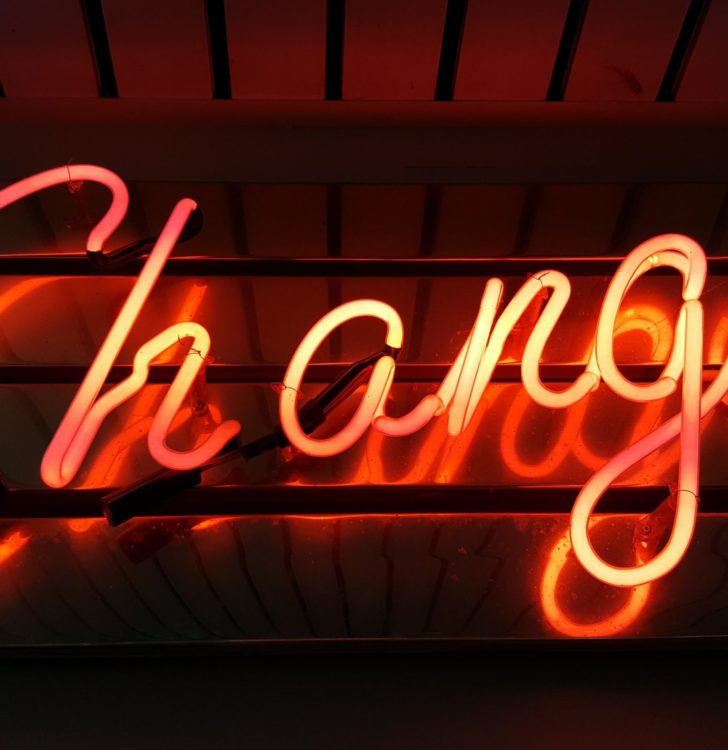Which mistakes did you make along the way?
One aspect that I could have done better in the past, is using the interview process for a new role, also to my own advantage. By not ‘just’ being the candidate that wants to prove themselves to the hiring company. Make it a two-way conversation where the topic of “do I fit in this organization?” is also discussed. Is this position really a good fit for me? Or can I improve my career and myself within the firm if the company is able to allow me the room to do so? Making that judgment is really crucial for you as the candidate. For both the business and for yourself. It won’t work out if there is a discrepancy between your expectations and what they can provide.
How did your management style change during your career?
Over time I had to learn to do less myself. This is a classical element for professionals growing into management roles. I had to learn how to give people full responsibility, let them learn while doing, and reflect on that. Not taking over when things are going wrong. Leave the responsibility with the professionals themselves. Nowadays in my job that’s extremely important. As I work with experts, I don’t have to tell them how to do their jobs. They often know it much better than I do, on the content. My role is more about clearing the path for them, giving them feedback about what I see, or connecting them to the right people.
Which challenges are you currently facing?
We see a lot happening in the market, and it’s not always easy as a fully established company, to move at the same speed as the competition. Especially in the digital space, small companies can move with much more agility and overtake hurdles quickly. While for more established companies this is more challenging. Companies are getting challenged on important features from a customer perspective. Smaller companies can make adjustments quicker with the latest technology. For the more established party it’s important to benefit from the position in the market; the big user base, a strong brand, etc. For example, in the consumer marketplace business, competitors are integrating the transaction in the platform, this brings so much customer value. More traditional trading platforms don’t facilitate the payment and have a much more ‘hands-off approach’. These kinds of developments challenge the status quo. How to keep enough innovation speed in the company is therefore a vital question in the digital space.
How do you find a balance between your professional and private life?
During the pandemic I learned that there are two types of people: separators and integrators. The separators are people that really like to separate time spent on private life from time spent on work. Integrators are people that love to do everything at the same time. I’m typically an integrator, I’m always working, also on the weekend. Thinking, talking or brainstorming about it. At the same time I will just as easily go to a performance of my daughter for example on a Tuesday afternoon. For me, personally, it works really well to intermingle work and private activities.
As a manager and company you have to be careful on this matter, because there is no good or bad. For separators, being approached after work hours can feel stressful. eBay offered a great solution for this. It had a system that would prompt you with a message when sending an email after business hours: “The person is not working right now. Should I send it now or do you want to wait until Monday morning?”. I think those are amazing tools, which could help people who desire separation.
Which (new) key marketing/sales competencies will be crucial to succeed in the future?
It’s easy to fall into clichés here, but it’s all about understanding and genuinely caring about your customers’ requirements and values. In what ways do they encounter issues while using your product or service? Additionally, it’s crucial to research the entire landscape. We frequently have a tendency to just consider competitors that provide the exact same goods or services, but in a highly competitive market, you need to look further than that.
For instance, at a classified platform, we shouldn’t limit our research into the trading behavior of consumers but also into how customers spend their time. For a high traffic platform that is really important, as people often use it to get distraction or amusement. If you define your position like this, your group of competitors becomes much bigger, e.g. new sites or magazines. Where, why and how do my customers interact with my product or my service? Who are my competitors and what are really my distinguishing factors? That is fundamental knowledge to succeed in the future.
If you hire a new employee, what are the key elements/competences that are important to you?
What I notice in the hiring process, is that it often comes down to a feeling or connection with someone. I realize that’s a risk, we have to be aware that we’re not just hiring ‘our own kind’. To build a diverse team you have to be aware that in the recruitment process, you tend to choose people that are similar to yourself. As I mentioned in the beginning, a more diverse team works better. For example, I’m very inclined to think about the bigger picture: where are we going, what is the strategic goal, how does it fit in our path for the future? So what I need in my team are people that have a clear view on the details. To get a good implementation that is crucial. The diversity in characters and skills is very important. For that reason, at the companies I worked at, I tried to hire with diverse recruitment teams; someone from product, someone from marketing, someone from e-commerce, etc, with diverse backgrounds.





